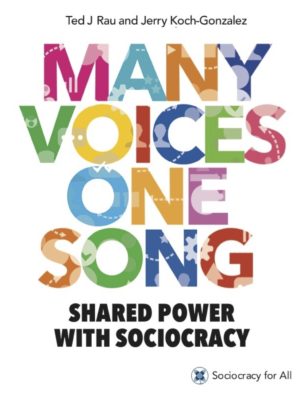Category: Decisions and Power
Sociocracy has specific methods and practices for ensuring that decision-making and power are linked and shared. Democracy was originally revolutionary by allowing the common citizen to make decisions using majority vote to make decisions. But it has no structure for ensuring that those decisions are implemented. A sociocratic system of communications and control would ensure better decision-making and give more power to democratic values.
How could it be possible for everyone in a company to be making decisions? There is too much information. People would be in meetings all day and most people don’t want all that information and won’t listen anyway.
In the sociocratic structure of interconnected decision-making circles, everyone participates in the decisions that directly affect their daily work, but only in those decisions. Unless they are the elected representative or the operational leader they don’t participate… Read More . . . “How Can Everyone Make Decisions?” Many communities—cohousing, religious, etc.—believe that conflict resolution is based on loving and understanding. That if we just care more and understand each other’s needs, conflict will go away. They emphasize how hard this is. “This is the hard work we all need to do.”
Peace workers, in particular, are big on love and understanding and couple attempts to acquire it not only with hard work but with courage. “It takes a lot of courage to… Read More . . . “Conflict Resolution: The Fixer” Many communities—cohousing, religious, etc.—believe that conflict resolution is based on loving and understanding. That if we just care more and understand each other’s needs, conflict will go away. They emphasize how hard this is. “This is the hard work we all need to do.”
Peace workers, in particular, are big on love and understanding and couple attempts to acquire it not only with hard work but with courage. “It takes a lot of courage to… Read More . . . “The Fixer” Satisfice (a portmanteau of satisfy and suffice) is a decision-making strategy that attempts to meet criteria for adequacy and not to find an ideal solution.
The word satisfice was created by Herbert Simon in 1947. He pointed out that human beings lack the cognitive resources to maximize: we usually do not know the relevant probabilities of outcomes, we can rarely test all outcomes with sufficient precision, and our memories are weak and unreliable. A more… Read More . . . “Satisfice: Satisfying & Sufficient” On the demands of its membership, but failing at building consent, the board of a wildlife federation passes a controversial plan to save a wild bird’s threatened habitat but then quietly deletes the budget for legal action. A Senate committee unanimously recommends proposed legislation after amending it until all the committee members have added unrelated perks for their constituencies, bloating the budget with cost overruns. A local bicycle-path organization calls off its protests against a… Read More . . . “Building Consent — Compromise or Payoffs?” 
